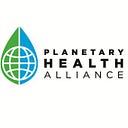How climate change is impacting Universal Health Coverage implementation
Munzur-E-Murshid
Campus Ambassador — Planetary Health Alliance
Hiroshima University, Japan
Climate change is exerting a major influence on the implementation of Universal Health Coverage (UHC) worldwide (1). The mounting environmental issues linked with climate change, such as rising temperatures, extreme weather events, shifting precipitation patterns, and increased air pollution, have substantial implications for human health and well-being (2, 3). These climate-related impacts constitute a substantial threat to the accomplishment of UHC goals, hampering efforts to ensure equitable access to essential health care for all individuals and communities (4).
One of the key ways in which climate change affects UHC implementation is through its impact on illness patterns. Climate change supports the expansion of vector-borne diseases, such as malaria, dengue fever, and Lyme disease, by modifying the geographic range and increasing the incidence of disease vectors like mosquitoes and ticks. Consequently, the burden of chronic diseases grows, disproportionately affecting vulnerable people, particularly those already marginalized and living in poverty. The pressure placed on health services to manage and control the situation constitutes a fundamental hurdle to the achievement of UHC. These climate-related impacts hamper equitable access to essential health care for all individuals and communities (5–7).
Moreover, climate change adds to an upswing in natural catastrophes, including hurricanes, floods, and wildfires, which inflict serious damage to infrastructure and impede healthcare delivery. These catastrophes can cause the displacement of communities, destroy health facilities, and compromise access to key health services, delaying progress towards achieving UHC. Additionally, the psychological and emotional toll of suffering such disasters can exacerbate mental health issues, needing increased resources for mental health care and support systems (8,9).
Furthermore, climate change jeopardizes food security and nutrition, which are critical determinants of health. Changes in precipitation patterns and extreme weather events, such as droughts and floods, degrade agricultural production, leading to crop failures, food shortages, and famine. Inadequate access to nutritious food substantially affects vulnerable groups, notably children and pregnant women, with long-lasting consequences for their health and development. Addressing these climate-induced food security challenges demands an integrated approach that integrates health, agriculture, and environmental policy, thereby highlighting the connectivity between climate change and UHC (10–12).
In conclusion, climate change impedes the successful implementation of Universal Health Coverage by escalating current health challenges. UHC objectives face substantial obstacles because of the negative effects on disease patterns, healthcare infrastructure damage, food insecurity, and damaging air quality. Protecting public health and improving UHC depend on addressing climate change and increasing resilience, which calls for coordinated efforts across sectors and countries to lessen the effects and secure a sustainable and just future for all.
References
(1) Salas RN, Jha AK. Climate change threatens the achievement of effective universal healthcare. BMJ. 2019 Sep 23;366:l5302. doi: 10.1136/bmj.l5302. PMID: 31548271; PMCID: PMC6753637.
(2) Samano D, Saha S, Kot TC, Potter JE, Duthely LM. Impact of Extreme Weather on Healthcare Utilization by People with HIV in Metropolitan Miami. Int J Environ Res Public Health. 2021 Mar 2;18(5):2442. doi: 10.3390/ijerph18052442. PMID: 33801407; PMCID: PMC7967571.
(3) Shenoy S, Gorinevsky D, Trenberth KE, Chu S. Trends of extreme US weather events in the changing climate. Proc Natl Acad Sci U S A. 2022 Nov 22;119(47):e2207536119. doi: 10.1073/pnas.2207536119. Epub 2022 Nov 14. PMID: 36375064; PMCID: PMC9704732.
(4) Schoder, D. (2019) Opinion: What does UHC look like in the climate change era?, devex. Available at: https://www.devex.com/news/opinion-what-does-uhc-look-like-in-the-climate-change-era-95078 (Accessed: May 17, 2023).
(5) Makrufardi F, Manullang A, Rusmawatiningtyas D, Chung KF, Lin SC, Chuang HC. Extreme weather and asthma: a systematic review and meta-analysis. Eur Respir Rev. 2023 Jun 7;32(168):230019. doi: 10.1183/16000617.0019–2023. PMID: 37286218; PMCID: PMC10245140.
(6) Booth M. Climate Change and the Neglected Tropical Diseases. Adv Parasitol. 2018;100:39–126. doi: 10.1016/bs.apar.2018.02.001. Epub 2018 Mar 28. PMID: 29753342; PMCID: PMC7103135.
(7) Negev M, Paz S, Clermont A, Pri-Or NG, Shalom U, Yeger T, Green MS. Impacts of Climate Change on Vector Borne Diseases in the Mediterranean Basin — Implications for Preparedness and Adaptation Policy. Int J Environ Res Public Health. 2015 Jun 15;12(6):6745–70. doi: 10.3390/ijerph120606745. PMID: 26084000; PMCID: PMC4483728.
(8) Paterson J, Berry P, Ebi K, Varangu L. Health care facilities resilient to climate change impacts. Int J Environ Res Public Health. 2014 Dec 16;11(12):13097–116. doi: 10.3390/ijerph111213097. PMID: 25522050; PMCID: PMC4276665.
(9) Corvalan C, Villalobos Prats E, Sena A, Campbell-Lendrum D, Karliner J, Risso A, Wilburn S, Slotterback S, Rathi M, Stringer R, Berry P, Edwards S, Enright P, Hayter A, Howard G, Lapitan J, Montgomery M, Prüss-Ustün A, Varangu L, Vinci S. Towards Climate Resilient and Environmentally Sustainable Health Care Facilities. Int J Environ Res Public Health. 2020 Nov 28;17(23):8849. doi: 10.3390/ijerph17238849. PMID: 33260752; PMCID: PMC7731282.
(10) Dasgupta S, Robinson EJZ. Attributing changes in food insecurity to a changing climate. Sci Rep. 2022 Mar 18;12(1):4709. doi: 10.1038/s41598–022–08696-x. PMID: 35304565; PMCID: PMC8932097.
(11) Belsey-Priebe M, Lyons D, Buonocore JJ. COVID-19’s Impact on American Women’s Food Insecurity Foreshadows Vulnerabilities to Climate Change. Int J Environ Res Public Health. 2021 Jun 26;18(13):6867. doi: 10.3390/ijerph18136867. PMID: 34206797; PMCID: PMC8296854.
(12) Gebre GG, Rahut DB. Prevalence of household food insecurity in East Africa: Linking food access with climate vulnerability. Clim Risk Manag. 2021;33:None. doi: 10.1016/j.crm.2021. 100333. PMID: 34476175; PMCID: PMC8390380.
